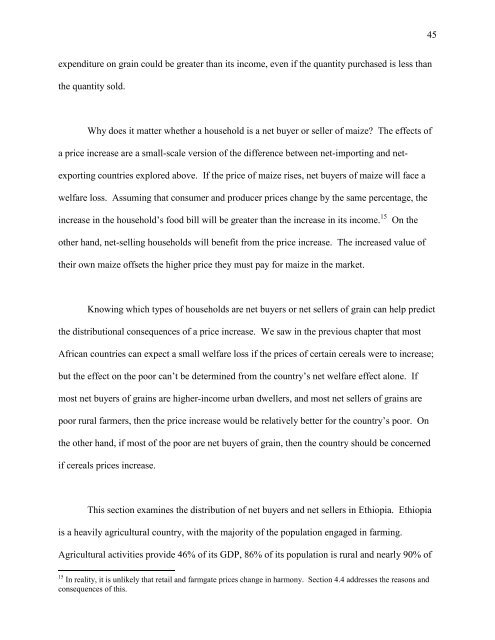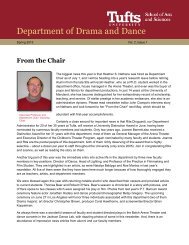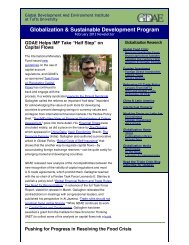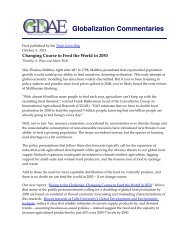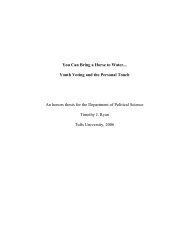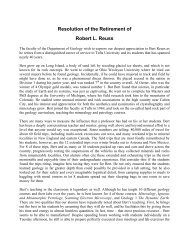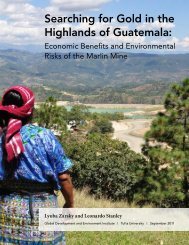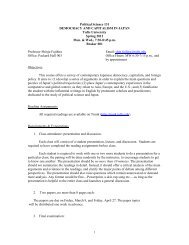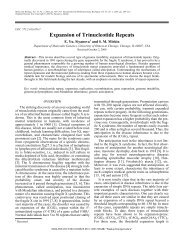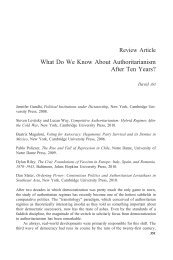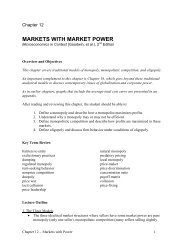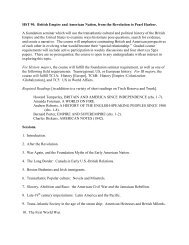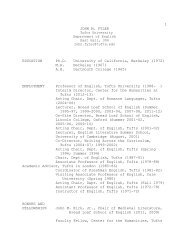The Impact of a New WTO Agricultural Agreement ... - Tufts University
The Impact of a New WTO Agricultural Agreement ... - Tufts University
The Impact of a New WTO Agricultural Agreement ... - Tufts University
Create successful ePaper yourself
Turn your PDF publications into a flip-book with our unique Google optimized e-Paper software.
45<br />
expenditure on grain could be greater than its income, even if the quantity purchased is less than<br />
the quantity sold.<br />
Why does it matter whether a household is a net buyer or seller <strong>of</strong> maize? <strong>The</strong> effects <strong>of</strong><br />
a price increase are a small-scale version <strong>of</strong> the difference between net-importing and netexporting<br />
countries explored above. If the price <strong>of</strong> maize rises, net buyers <strong>of</strong> maize will face a<br />
welfare loss. Assuming that consumer and producer prices change by the same percentage, the<br />
increase in the household’s food bill will be greater than the increase in its income. 15<br />
On the<br />
other hand, net-selling households will benefit from the price increase. <strong>The</strong> increased value <strong>of</strong><br />
their own maize <strong>of</strong>fsets the higher price they must pay for maize in the market.<br />
Knowing which types <strong>of</strong> households are net buyers or net sellers <strong>of</strong> grain can help predict<br />
the distributional consequences <strong>of</strong> a price increase. We saw in the previous chapter that most<br />
African countries can expect a small welfare loss if the prices <strong>of</strong> certain cereals were to increase;<br />
but the effect on the poor can’t be determined from the country’s net welfare effect alone. If<br />
most net buyers <strong>of</strong> grains are higher-income urban dwellers, and most net sellers <strong>of</strong> grains are<br />
poor rural farmers, then the price increase would be relatively better for the country’s poor. On<br />
the other hand, if most <strong>of</strong> the poor are net buyers <strong>of</strong> grain, then the country should be concerned<br />
if cereals prices increase.<br />
This section examines the distribution <strong>of</strong> net buyers and net sellers in Ethiopia. Ethiopia<br />
is a heavily agricultural country, with the majority <strong>of</strong> the population engaged in farming.<br />
<strong>Agricultural</strong> activities provide 46% <strong>of</strong> its GDP, 86% <strong>of</strong> its population is rural and nearly 90% <strong>of</strong><br />
15 In reality, it is unlikely that retail and farmgate prices change in harmony. Section 4.4 addresses the reasons and<br />
consequences <strong>of</strong> this.


